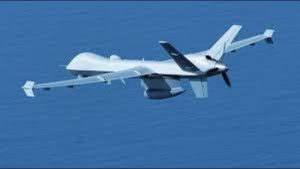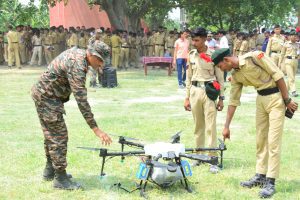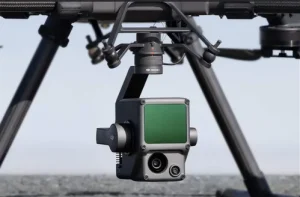Ludhiana, Punjab – The landscape of military training is rapidly evolving, and the NCC Cadets Drone Training program in Ludhiana stands as a testament to this transformation. This comprehensive seven-day initiative represents a significant leap forward in equipping young military personnel with cutting-edge technological skills that are increasingly vital in modern defense operations.
Comprehensive Overview of the Training Program
The NCC Cadets Drone Training program, conducted at the prestigious National Skill Training Institute (NSTI), brings together 15 dedicated cadets from the 3rd Punjab Girls Battalion (PB G BN NCC) for an intensive learning experience. This groundbreaking initiative, which commenced on May 19 and concludes on May 23, demonstrates the National Cadet Corps‘ commitment to staying at the forefront of technological advancement.

The program’s design reflects a carefully structured approach to drone education, combining theoretical knowledge with practical application. Each day of the NCC Cadets Drone Training builds upon previous learning, ensuring that participants develop a comprehensive understanding of drone technology from basic operations to advanced mission planning.
Advanced Simulation Technology in Military Training
The third day of the NCC Cadets Drone Training program marked a significant milestone with the introduction of sophisticated drone simulators. These state-of-the-art training tools provide cadets with an immersive virtual environment that closely replicates real-world drone operations. The simulation technology allows participants to experience the complexities of drone piloting without the risks associated with actual flight operations.


During the simulation phase of NCC Cadets Drone Training, trainers emphasized the critical importance of virtual practice in mastering both operational and handling aspects of drone technology. This methodical approach ensures that cadets develop confidence and competence before transitioning to real drone operations. The virtual environment provides a safe space for learning from mistakes and perfecting techniques that will prove invaluable in actual field conditions.
Also Read: YouTuber Jyoti Malhotra Confession Exposes Talks With Pakistan Officials Before Pahalgam Attack
Each cadet participating in the NCC Cadets Drone Training received extensive hands-on practice through these advanced simulators. The immersive experience allows them to understand the nuances of drone control, navigation challenges, and the precision required for successful mission execution. This preparatory phase serves as a crucial foundation for the more advanced aspects of drone operation that follow.
Technical Skill Development and Mission Planning
The NCC Cadets Drone Training program goes far beyond basic piloting skills, incorporating sophisticated technical elements that are essential for modern drone operations. One of the most significant components involves training cadets to connect and operate drones using mission planner software. This specialized software represents a vital tool for planning and executing complex drone missions, and its mastery is essential for effective drone deployment.


The mission planner software component of NCC Cadets Drone Training enables participants to understand the strategic aspects of drone operations. Cadets learn to plot flight paths, set waypoints, establish communication protocols, and manage mission parameters. This comprehensive approach ensures that graduates of the program possess not only piloting skills but also the strategic thinking necessary for effective drone deployment in various scenarios.
Through the NCC Cadets Drone Training curriculum, participants gain exposure to advanced planning techniques that mirror those used in professional military and civilian drone operations. The software training component provides them with industry-standard skills that will prove valuable throughout their military careers and potentially in civilian applications as well.
Advanced Technology Integration
The NCC Cadets Drone Training program incorporates cutting-edge technological components that reflect the current state of drone technology. Camera interfacing training forms a crucial element of the curriculum, teaching cadets how to operate and manage the sophisticated imaging systems that modern drones employ. This skill is particularly valuable for reconnaissance, surveillance, and documentation missions.
LIDAR integration represents another advanced aspect of the NCC Cadets Drone Training program. LIDAR (Light Detection and Ranging) technology enables drones to create detailed three-dimensional maps of terrain and structures. Training in this technology prepares cadets for missions requiring precise geographical data collection, terrain analysis, and environmental monitoring.


The integration of these advanced technologies within NCC Cadets Drone Training ensures that participants emerge with skills that are directly applicable to modern military and civilian drone operations. The comprehensive approach to technology training reflects the program’s commitment to preparing cadets for the technological demands of contemporary military service.
Safety Protocols and Operational Procedures
Safety remains paramount throughout the NCC Cadets Drone Training program, with extensive emphasis placed on proper arming and disarming protocols. These procedures are fundamental to safe drone operation and represent critical knowledge that every drone operator must possess. The training ensures that cadets understand not only how to operate drones effectively but also how to do so safely.
The arming and disarming protocols taught during NCC Cadets Drone Training cover various scenarios and emergency procedures. Cadets learn to handle equipment malfunctions, communication failures, and adverse weather conditions. This comprehensive safety training ensures that graduates are prepared for the unexpected challenges that can arise during drone operations.
Through rigorous safety training, NCC Cadets Drone Training participants develop the discipline and awareness necessary for responsible drone operation. This foundation of safety consciousness will serve them well throughout their military careers and in any future civilian applications of their drone operation skills.
Comprehensive Training Team and Support Structure
The success of the NCC Cadets Drone Training program relies heavily on its comprehensive support structure. The program brings together a diverse team of experienced professionals, including two Associate NCC Officers (ANOs) who provide leadership and oversight throughout the training process. Their experience and guidance ensure that the training maintains high standards and achieves its educational objectives.
Two Permanent Instructor (PI) staff members contribute their specialized knowledge to the NCC Cadets Drone Training program, bringing years of military training experience to the initiative. Their involvement ensures that the training aligns with broader military education standards and career development requirements.
A Girl Cadet Instructor (GCI) plays a particularly important role in the NCC Cadets Drone Training program, providing mentorship and guidance specifically tailored to the needs of female cadets. This targeted support helps ensure that all participants can fully benefit from the training opportunity regardless of their background or previous experience with technology.
Alignment with National Skill Development Mission
The NCC Cadets Drone Training program represents a significant step in aligning military education with the Government of India’s broader skill development mission. This alignment demonstrates the NCC’s commitment to providing cadets with skills that are not only militarily relevant but also valuable in the civilian sector.
Through NCC Cadets Drone Training, participants gain exposure to technologies that are rapidly expanding across multiple sectors including agriculture, construction, emergency services, and environmental monitoring. This broad applicability ensures that the skills developed during training have long-term value for participants’ career development.
The integration of NCC Cadets Drone Training with national skill development objectives reflects a forward-thinking approach to military education that recognizes the interconnected nature of military and civilian technological advancement.
Future Implications and Career Development
The completion of NCC Cadets Drone Training opens numerous pathways for career advancement within military and civilian contexts. The comprehensive skill set developed through this program positions graduates for leadership roles in technologically advanced military units and provides them with valuable credentials for civilian career opportunities.
As drone technology continues to evolve and expand across various sectors, graduates of NCC Cadets Drone Training will find themselves well-positioned to take advantage of emerging opportunities. The combination of technical skills, safety training, and strategic thinking developed through the program creates a strong foundation for continued professional development.
The NCC Cadets Drone Training program in Ludhiana represents more than just a training initiative; it embodies a vision of modern military education that prepares young leaders for the technological challenges of the future. Through comprehensive training, advanced technology integration, and alignment with national development goals, this program sets a new standard for military skill development and positions its graduates for success in an increasingly technological world.

